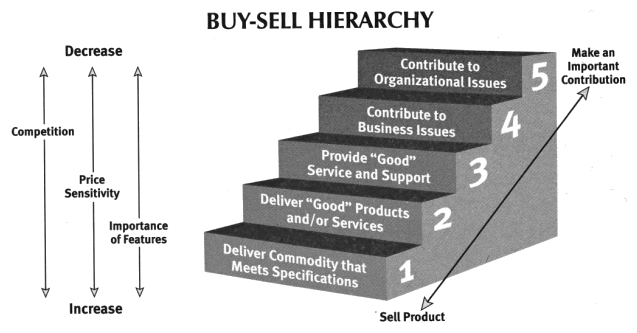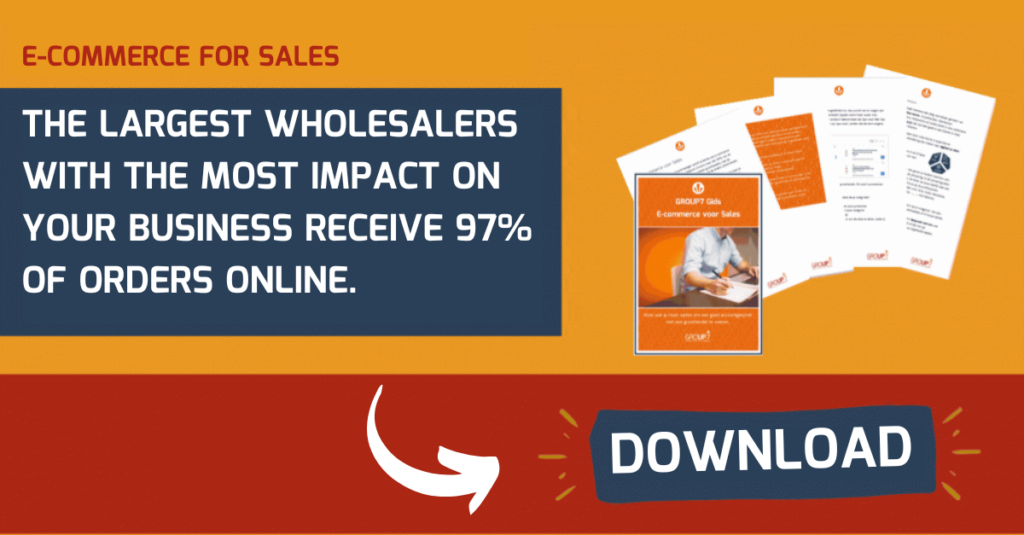The importance of e-commerce for sales
Key account managers in foodservice are responsible for major customers. More often than not, the key accounts are mainly wholesalers. Or at least, that is the way it is for nearly all the manufacturers we work with. That common situation is the premise for this article, where we will be examining the question: Why do key account managers NEED to be e-commerce experts now?
We also wrote an earlier article on e-commerce in foodservice, from the perspective of wholesalers. That article is about ‘Getting more results from webshops’.
The role of key account managers
The most important task of key account managers is to retain top clients and to nurture those key relationships over time. Ideally, they will become strategic partners and advisers to clients, discovering new opportunities to collaborate for their mutual benefit.
What are the key skills of key account managers?
Successful key account managers are good communicators. That is a basic skill, however. On top of that, key account managers are very service-oriented and always willing to go that extra mile for their customers. And most importantly of all?
Empathy. It is essential for key account managers to have a thorough understanding of the goals, drives and needs of their customers.
What if one of those customers is a wholesaler? On average, 83% of the sales made by Dutch wholesalers come from their webshops. That percentage is a bit lower in Belgium: 65%. So it makes perfect sense that cooperation in e-commerce is a crucial issue in the relationships between wholesalers and manufacturers.
The buy-sell hierarchy
This key-account theory was the brainchild of Robert Miller and Stephen Heiman. They developed the buy-sell hierarchy model. The short of it is that a relationship based on providing goods and services alone (levels 1 and 2) is more vulnerable to competition. Price also plays a relatively major role in this kind of business relationship.

When you start adding service and support (level 3) to that, your position is already a bit less vulnerable. The ultimate goal is to positively contribute to the important issues affecting an organisation (levels 4 and 5). When you are in that position, competition is hardly a factor and price plays a secondary role.
In other words: It is best for key account managers to make a difference when it comes to an organisation’s major issues.
With wholesalers, you can only contribute to key business issues if you truly understand their main sales channel.
That is the single most important reason why e-commerce is such an important topic for key account managers.
How do you prepare a customer strategy?
A customer strategy can be prepared in four simple steps. To do that, you first look at the customer side, and then your own organisation:
- Trends: what developments affect their business?
- Opportunities: What opportunities are open to my client?
- Own strengths: This is where you can find possibilities to support your client.
- Weaknesses: Finally, you should also examine your own vulnerabilities.
It is essential for key account managers to know the market trends. But food-commerce trends also play a role. For example, we are seeing a strong increase in personalisation in e-commerce, including among foodservice wholesalers.
This involves using more and more data. For example:
- The product range shown in webshops differ by segment,
- The order in which items are displayed depends on your customer profile,
- Search results are influenced by your previous purchases,
- The promotions displayed depend on your own customer history,
- You receive personalised emails, etc.
As a key account manager, if you are not aware of these kinds of developments – or only on a superficial level – you will not be in a position to act as a strategic partner for modern wholesalers.
The new E-commerce Guide for Sales -become an e-commerce expert
This means that as a sales manager or key account manager, your knowledge of e-commerce is becoming more and more important. In our new E-commerce Guide for Sales, you will find out everything you need to know to start a great dialogue with wholesaler accounts:
- What are the main topics you should be focusing on?
- What are the things you need to check up on?
- And what exactly are the regular talking points with wholesalers?
In this guide, which is actually a short 12-page e-book, you will read about the key checkpoints for food commerce: availability, visibility, findability, activations, e-commerce trends and market knowledge. We actually run a short course on E-commerce for Sales especially for key account managers – completely free of charge
This guide will help make you a better partner for wholesalers. You will engage in discussions with more confidence.
Want to have a chat about your challenges with no obligations? I’m looking forward to an interesting exchange about the challenges you’re facing. Then please feel free to schedule a video call with me, Martin van Dam.



